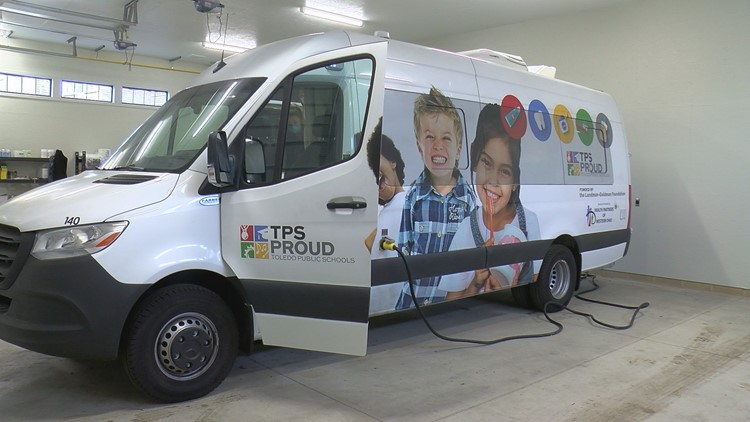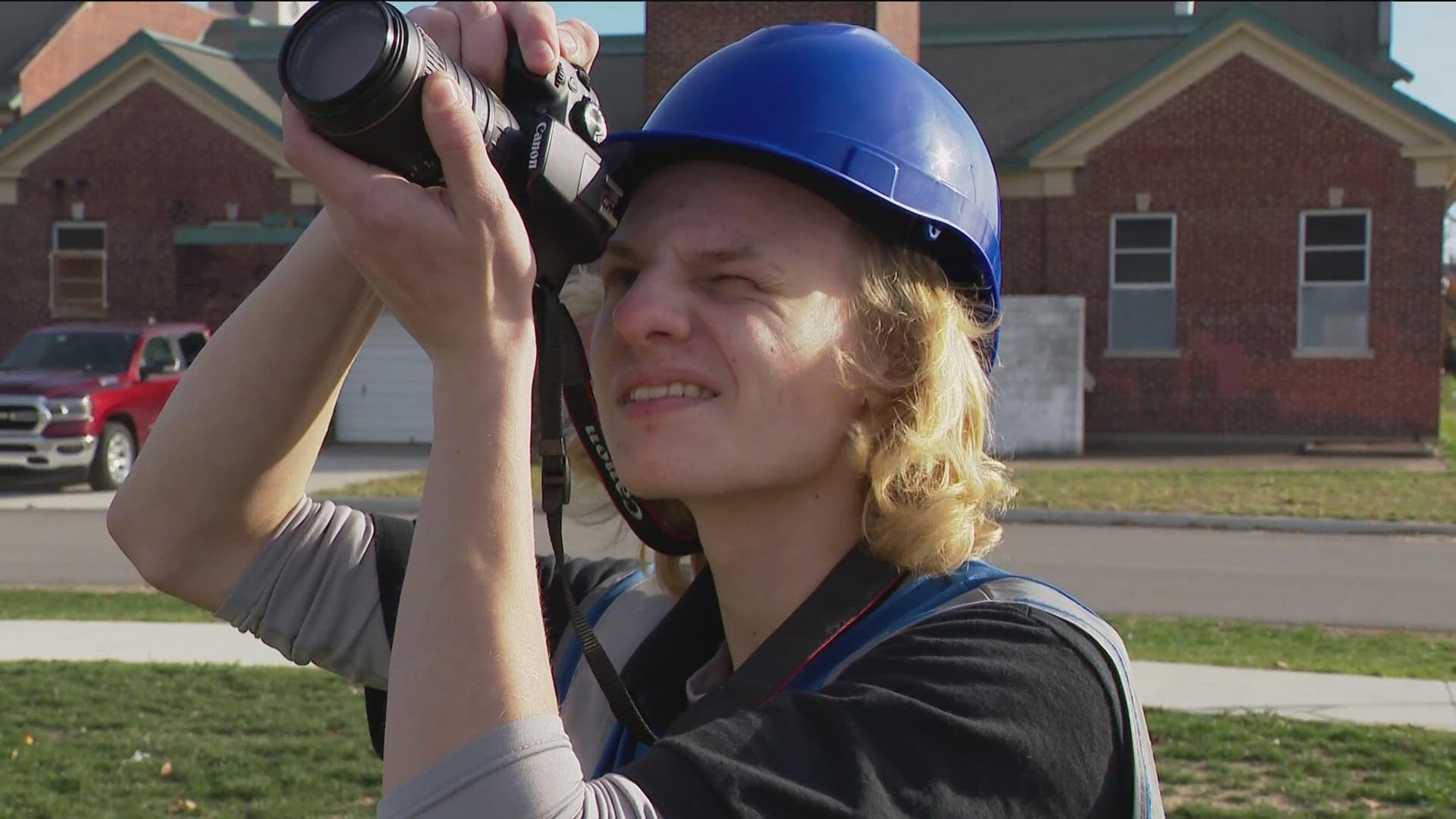TOLEDO, Ohio — Toledo Public Schools has unveiled its latest program to help students with basic health-care needs. The district's new mobile health unit will offer vision screenings, physical exams and dental care.
The health and nutrition coordinator with TPS, Nicole Hancock, said the district has numerous kids with significant dental needs. Some students have cavities that are so painful, it impacts their ability to learn, she said.
"With our early childhood kids, they can't always express what is happening and that they're in pain and it translates into them not being able to focus, not listening, acting out because they can't even eat," Hancock said.
Superintendent Romules Durant said families sometimes have a hard time getting access to proper health services.
With that in mind, this van will cut out any barriers students might face, including cost. All medical care will be provided for free thanks to a $500,000 donation from Landman-Goldman Foundation and a partnership with Health Partners of Western Ohio.
"Many times, we find parents have a difficult time. We have many kids who are being raised by their grandparents who no longer drive," Durant said. "Because of that, we're able to provide this type of care consistently that really makes a difference."
Medical staff on the van primarily work with children already, meaning this will help the students feel more comfortable when getting work done.
"Coming just outside to a van, it's not going to be nearly as traumatic as getting on a bus - maybe they've never even been on a bus - going to a place they've never been before, seeing all these people they don't know and getting work done on their teeth," Hancock said.
TPS will identify which students could benefit from having dental care, then the parents will be notified so a permission slip can be completed beforehand.
"It'll be scheduled and it [the van] will come right to the school," said Ann Newton, the director of early childhood at TPS. "The students can just walk right inside the door, have their dental treatment and then we'll provide the follow up that's needed for students that need follow up."
Durant said the best intervention is prevention. Being able to offer dental care to children when they are 4 or 5 years old makes that possible, he said.
More on WTOL:



